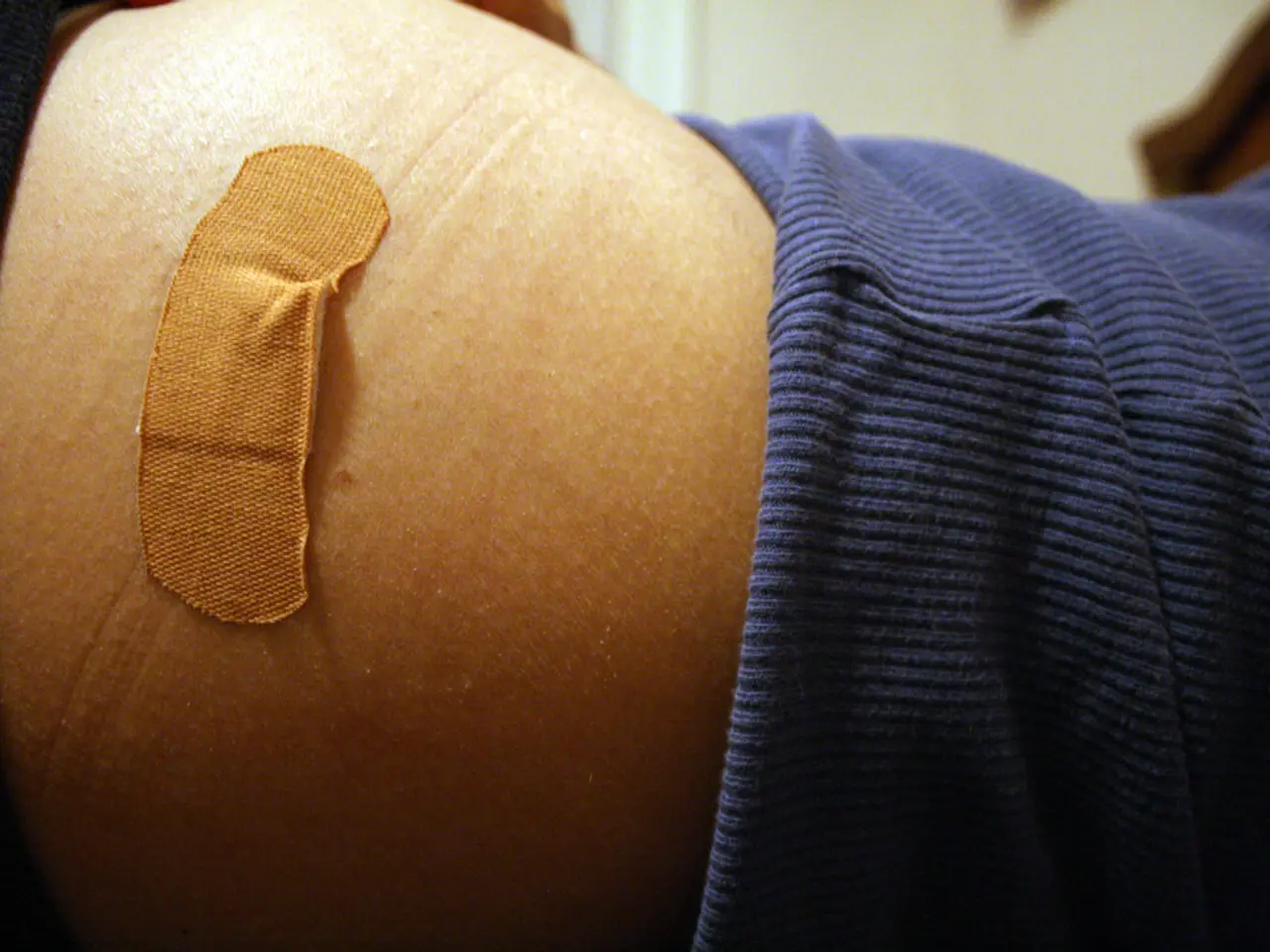Rapid aging of blood vessels due to COVID influence
================================================================
A new study published in the European Heart Journal suggests that COVID-19 may have a greater impact on vascular aging in women than in men, particularly due to their stronger immune response to the virus.
The large international CARTESIAN study, which included participants from 16 countries, including Austria, examined 2390 people and divided them into four groups: those not infected with COVID, those with a mild course of the disease, those treated on a normal ward for COVID, and those who were admitted to an intensive care unit with COVID.
The study found that COVID-19 leads to increased arterial stiffness, a marker for vascular aging, especially in women. This effect was observed even in women with mild or non-hospitalized COVID and was greater in those hospitalized in intensive care.
In women, the pulse wave velocity (PWV), a measure of arterial stiffness, increased by around 0.5 to 1.1 m/s post-COVID, representing about 5–7.5 years of vascular aging. This increase mechanically corresponds to a higher risk of heart attacks and strokes.
Men did not show statistically significant vascular changes post-COVID, potentially due to a survivor bias given higher male mortality and less pronounced vascular injury in survivors.
The stronger and more rapid immune response in women may cause more pronounced inflammation and vascular injury after infection, paradoxically leading to greater long-term vascular damage despite better initial protection against severe disease.
Vaccination plays a protective role by reducing arterial stiffening and helping stabilize vascular symptoms over time in women. The study found that those who had been vaccinated had less stiff arteries on average than the unvaccinated.
The study also found that women and those suffering from long COVID appear to be more affected by this effect. As we age, our blood vessels become stiffer, and stiffer blood vessels increase the risk of diseases such as stroke and heart attack, experts say.
The data on why women are particularly affected by the arterial aging effect is interesting, according to Kardiologe Dominik Rath from the University Hospital Tübingen. The measurements were taken six and twelve months after infection, with factors such as age and pre-existing conditions taken into account.
The study serves as a call for further investigations into the long-term effects of COVID on the cardiovascular system. Politician Karl Lauterbach sees a lack of funding for ME/CFS as a state failure and believes that further studies are needed to clarify the causes of the findings.
Schunkert, deputy chairman of the German Heart Foundation and director of the Clinic for Heart and Circulatory Diseases at the German Heart Centre of the Technical University of Munich, believes that the study's findings are noteworthy because many people were affected by a COVID infection. The result of the study was that people infected with COVID had stiffer arteries on average than those who were not infected.
Researchers measured the "vascular age" of participants using a device that determines the speed of the pulse wave between the carotid and femoral arteries. The authors of the study suggest that the lack of significant difference in men could be due to a "survivorship bias" among male participants.
The data on the long-term effects of COVID on the cardiovascular system serves as a call for further investigations, as suggested by the study. This highlights the importance of monitoring cardiovascular health in female COVID-19 survivors and the potential benefits of vaccination to mitigate these vascular risks.
- The European Union, in its efforts to combat poverty and social exclusion, could consider initiatives that focus on supporting the cardiovascular health of women, given the new study's findings about COVID-19's impact on vascular aging in women.
- In addition to workplace-wellness programs, companies might consider incorporating mandatory medical screenings for chronic diseases like heart diseases, cancer, respiratory conditions, digestive health issues, eye-health concerns, hearing problems, and autoimmune disorders as part of their health and wellness programs.
- Fitness and exercise routines could be tailored to address the unique vascular health needs of women, particularly those who have survived COVID-19, as stiffer blood vessels increase the risk of diseases such as stroke and heart attack.
- Skin-care regimens might also benefit from an emphasis on supporting overall health and wellness, as the study found that women and those suffering from long COVID appear to be more affected by the arterial aging effect.
- Incorporating mental health therapies and treatments into parenting programs could help address the potential longer-term vascular risks associated with COVID-19, as stress and anxiety can exacerbate conditions like chronic diseases, cardiovascular health issues, and even skin conditions.
- A balanced diet rich in nutrition can play a critical role in maintaining optimal cardiovascular health, particularly for women who have survived COVID-19, as a healthier diet can help manage conditions like chronic diseases, cardiovascular health issues, and even skin conditions.
- Women's health researchers could explore the link between menopause and the observed increased arterial stiffness in women who have survived COVID-19, as hormonal changes during menopause can influence vascular health.
- Given the stronger and more rapid immune response in women, it might be important to study the impact of various vaccines on vascular health, and how they might mitigate long-term vascular damage caused by COVID-19.
- Further research into the role of nutrition in managing and preventing the effects of COVID-19 on vascular health could lead to new treatments and therapies for digestive health, eye-health, and skin-conditions.
- As the study highlights the importance of monitoring cardiovascular health in female COVID-19 survivors, it might be necessary to allocate more funding to this area of research, ensuring that resources are available for investigations into the long-term effects of COVID-19 on the cardiovascular system.
- The study's findings on the lasting impacts of COVID-19 on vascular health in women could inspire scientists to investigate similar effects in other areas, such as sexual health and hearing, as a more comprehensive understanding of COVID-19's aftereffects is crucial for crafting effective responses to the pandemic and for improving global health care in the future.







